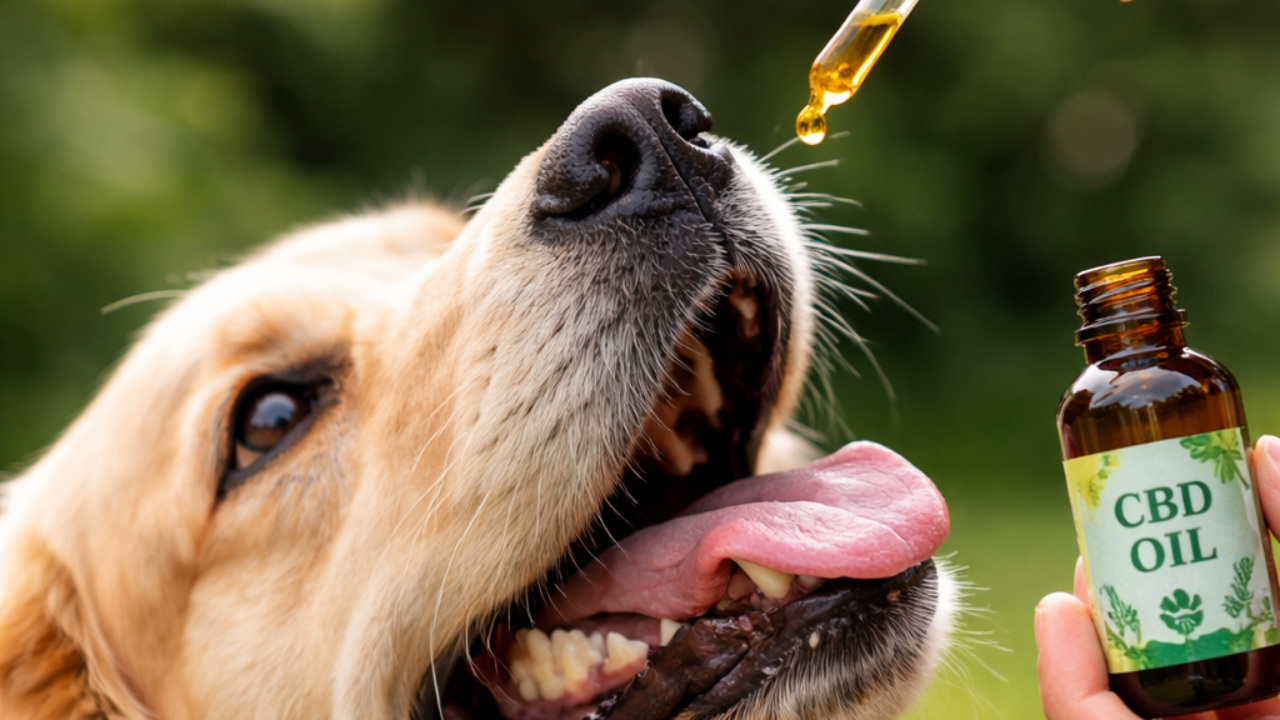Finding Rick Simpson Oil for Dogs with Cancer
Apr 13, 2025
Rick Simpson Oil (RSO) is a potent, full-spectrum cannabis extract known for its high concentration of THC (tetrahydrocannabinol) and its potential medicinal benefits. Named after Canadian medical cannabis advocate Rick Simpson, who originally developed it to treat his own skin cancer, RSO retains the full profile of cannabinoids, terpenes, and plant compounds from the cannabis plant—making it different from more refined cannabis oils.
While initially created for human use, RSO has caught the attention of pet owners exploring alternative cancer support for dogs. Due to its high THC levels, it's incredibly powerful and should be approached with extreme care and veterinary guidance when used with animals.
Can Dogs Take RSO?
Yes—but with caution and professional oversight. Dogs can benefit from certain cannabinoids found in RSO, such as THC and CBD, especially when it comes to pain relief, inflammation, nausea, and possibly cancer symptom management.
Many holistic veterinarians and pet parents are beginning to explore the use of RSO for dogs, especially those with terminal cancer or those not responding well to conventional treatments. Some have reported improved appetite, reduced pain, and enhanced comfort—but these effects are anecdotal, and research is still emerging.
How Does RSO Work in Dogs?
Dogs, like humans, have an endocannabinoid system (ECS)—a complex network of receptors (CB1 and CB2) that regulate vital functions such as pain, inflammation, appetite, and mood. THC primarily interacts with CB1 receptors in the brain and nervous system, while CBD works more subtly throughout the body.
In theory, RSO may:
- Support apoptosis (natural death of cancer cells)
- Reduce inflammation and pain
- Help with appetite stimulation and nausea relief
- Improve overall comfort and reduce anxiety
However, because THC is psychoactive and powerful, the key is to go “low and slow” when using RSO in dogs—starting with microdoses and adjusting carefully.
Best RSO Products and How to Give Them
If you're considering RSO for your dog, tinctures are the most manageable and precise way to dose. Here are two options:
- RSO Tinctures: Mixed with a carrier oil, these can be added to food for easier absorption. Recommended starting dose: 3–6 drops, 2–3 times daily, depending on your dog's size.
- RSO Suppositories: Useful for dogs who can’t tolerate oral medication. This method bypasses digestion and offers fast absorption without intense psychoactive effects.
Start with very small doses and observe your dog closely for side effects like sedation, stumbling, drooling, or vomiting. If these occur, pause immediately and consult your vet.
Pros and Cons of RSO for Dogs
Pros:
- May reduce pain, inflammation, and cancer-related symptoms
- Can improve appetite and reduce nausea
- Whole-plant benefits from a full spectrum of cannabinoids
Cons:
- High THC levels can be risky for dogs without careful dosing
- May cause psychoactive effects if overused
- Not regulated—quality and safety vary widely between products
Where to Find High-Quality RSO
Look for lab-tested, full-spectrum RSO products from reputable brands that provide a Certificate of Analysis (COA). This ensures the product is free from pesticides, mold, and heavy metals—and shows the exact cannabinoid content.
Always ask:
- Is it third-party tested?
- Does it have clear THC and CBD amounts listed?
- Are the ingredients clean and minimal?
Avoid any RSO products that aren’t transparent about sourcing or lab results. And never give a product made for humans to your dog without veterinary approval.
Is RSO Safe for Dogs with Cancer?
Rick Simpson Oil holds promise as a natural support option for dogs facing cancer, especially when conventional treatments are limited or have been exhausted. But it must be approached responsibly, with careful dosing, close monitoring, and guidance from a vet who understands cannabis therapeutics.
If used correctly, RSO may improve quality of life—but it is not a cure and should be seen as a complementary therapy, not a replacement for medical care.
P.S.- If you're interested in learning more about providing this to your dog, King's Harvest offers free consultations.
References
Chaves C, Bittencourt PCT, Pelegrini A. Ingestion of a THC-Rich Cannabis Oil in People with Fibromyalgia: A Randomized, Double-Blind, Placebo-Controlled Clinical Trial. Pain Med. 2020 Oct 1;21(10):2212-2218. doi: 10.1093/pm/pnaa303. PMID: 33118602; PMCID: PMC7593796.
Guggisberg J, Schumacher M, Gilmore G, Zylla DM. Cannabis as an Anticancer Agent: A Review of Clinical Data and Assessment of Case Reports. Cannabis Cannabinoid Res. 2022 Feb;7(1):24-33. doi: 10.1089/can.2021.0045. Epub 2021 Aug 7. PMID: 34370591; PMCID: PMC8864433.
Mamo A, Szeto MD, Mirhossaini R, Fortugno A, Dellavalle RP. Tetrahydrocannabinol and Skin Cancer: Analysis of YouTube Videos. JMIR Dermatol. 2021 May 4;4(1):e26564. doi: 10.2196/26564. PMID: 37632811; PMCID: PMC10501512.
Nayak MM, Chai PR, Tung S, Sannes TS, Yusufov M, Braun IM. Letter to the Editor: The Role of Cannabidiol in Cancer Care: Oncologist and Cancer Patient Perspectives. Cannabis Cannabinoid Res. 2023 Apr;8(2):381-383. doi: 10.1089/can.2022.0033. Epub 2022 May 4. PMID: 35507954; PMCID: PMC10061323.
Become a Dog Cancer Coach.
Transform your passion for dogs into a meaningful, heart-led career with our Holistic Dog Cancer Coach Certification—an in-depth, flexible online program designed for compassionate caregivers ready to make a difference.
Stay connected with news and updates!
Join our mailing list to receive the latest news and updates from our team.
Don't worry, your information will not be shared.
We hate SPAM. We will never sell your information, for any reason.





